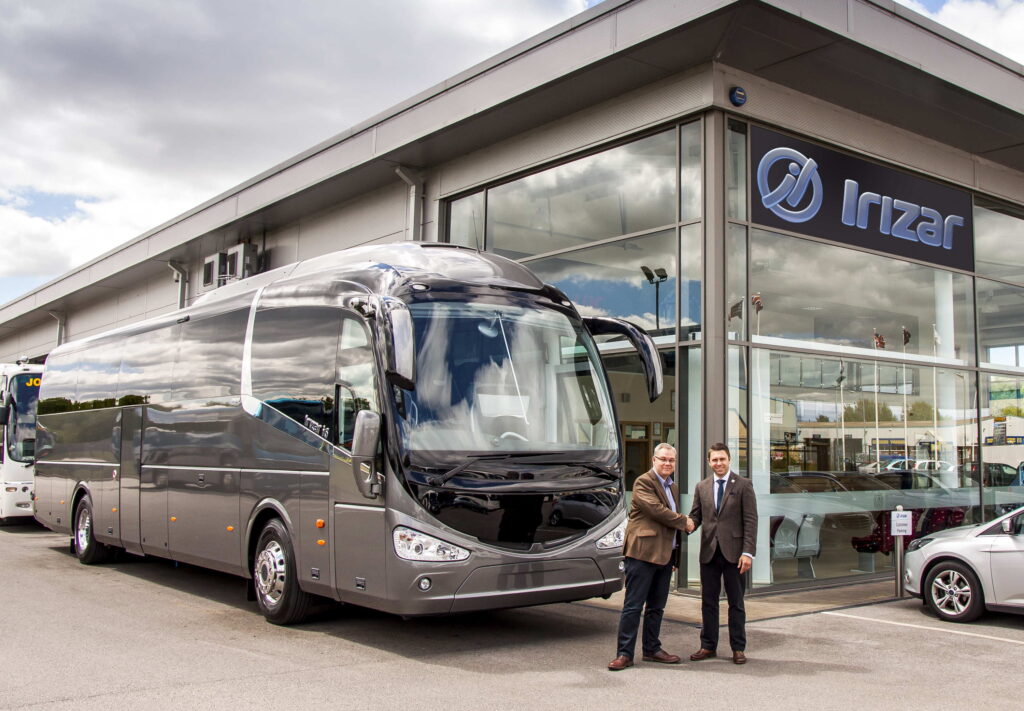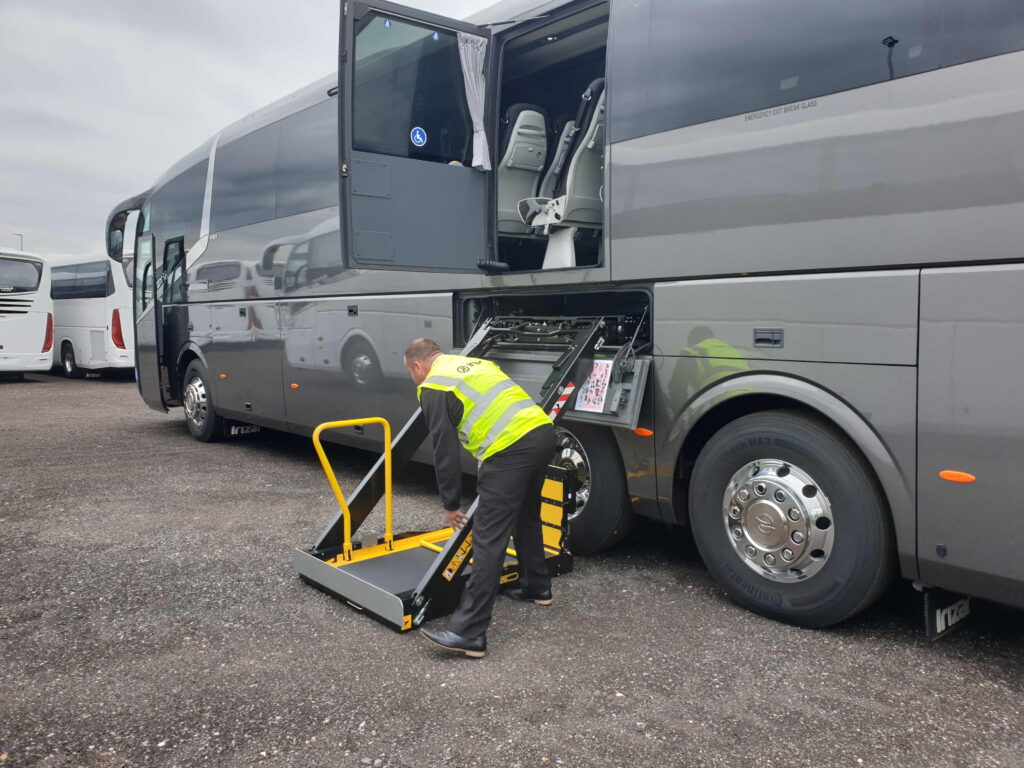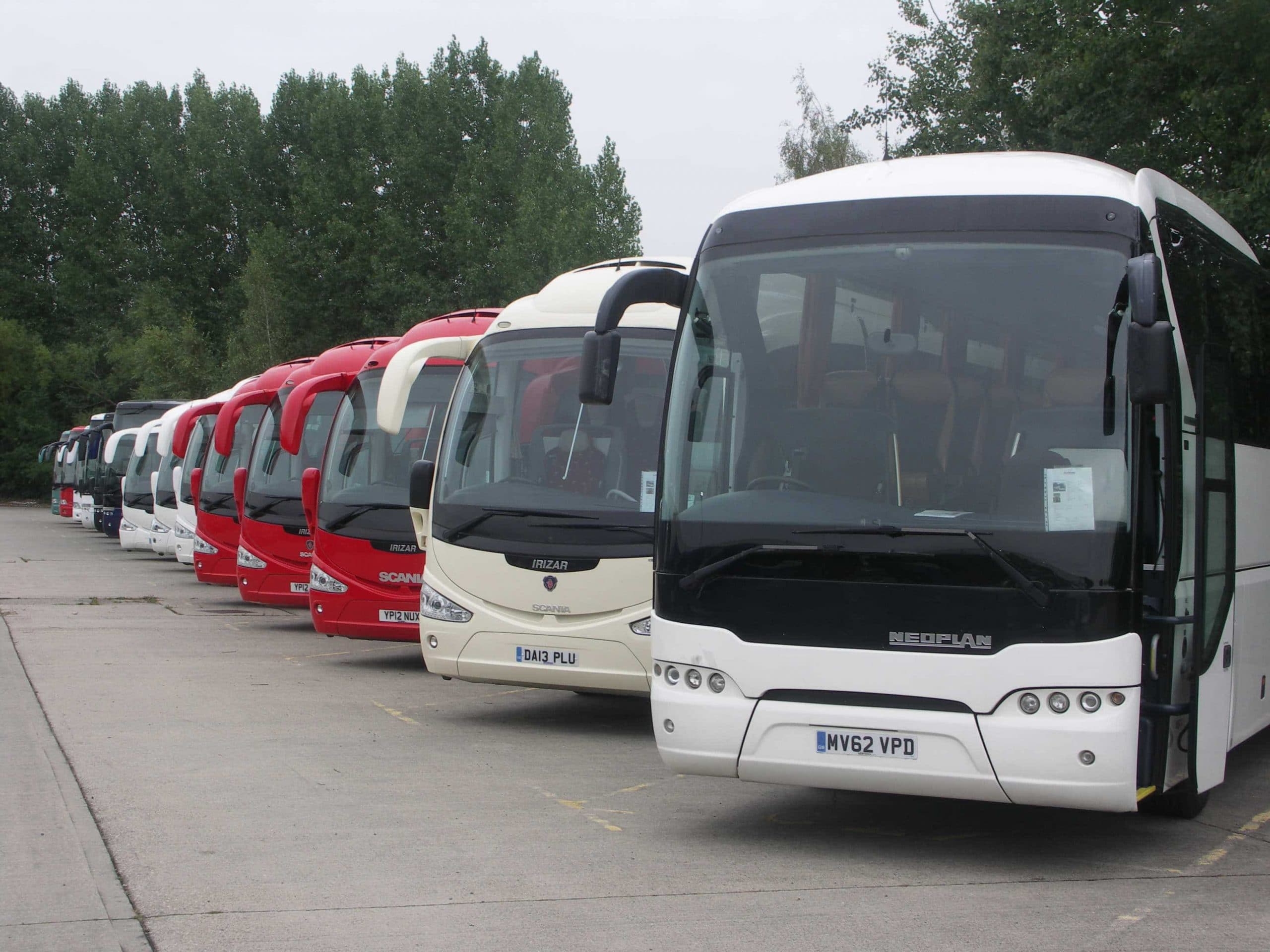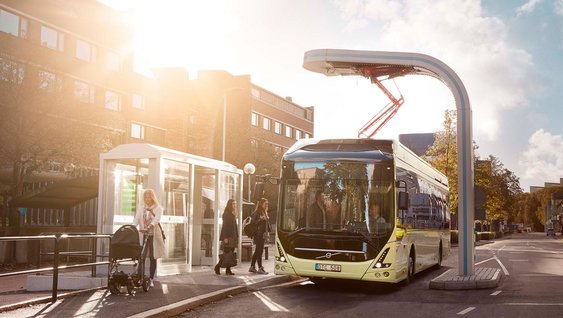COVID-19, PSVAR and changes around emission control zones have brought severe distress to the coach market. Could it change your approach to vehicle ownership?
With prices of used coaches depressed, and the need to stay compliant with emission control zones and the Public Service Vehicles Accessibility Regulations (PSVAR), is owning vehicles outright still an attractive option for operators – or will leasing, which shifts the risk associated with reselling away from operators, become the default position for new vehicles?
Shifting trends
Traditional purchase arrangements within coach and bus carry risks, and few times has that been made so apparent as during the mayhem of 2020. All financing of a new vehicle has at its core a spreading of the cost of ownership, taking a view of what that vehicle is worth over a period of time. A typical agreement will factor in depreciation to build an agreed amount of retained cash in an asset, later to be released. But with vehicles across the country off the roads, and cash tied up in fleets without a stable resale market, leasing may offer a favourable alternative.
Anecdotally, both funders and vehicle dealers report a more favourable view of lease contracts in recent years, and a number of operators are feeling the benefits of keeping some or all of their fleet off the balance sheet. Irizar UK Sales Director Julie Hartley says attitudes to lease have changed substantially over the last 20 years, and where it might traditionally have applied to bus operations it is now more viable for coach. But that acceleration may have been driven by low leasing prices. Leasing does not avoid the drop in residual values experienced by operators – it simply shifts the risk. And if lease providers are put at higher risk, it will reflect prices.

A matter of risk
An operator that doesn’t wish to expose itself to any risk can negotiate with a finance company to achieve an acceptable monthly rate for a fixed price business model in its books. With knowledge of what’s going out each month and confidence in underlying income, whether by contract or historic private hire or tour work, these activities can be costed against each other. What no operator or finance company likely anticipated was the level of distress currently in the market. Used vehicle prices have fallen so far below the market norm that valuations in fleets have been completely disrupted. Tier one funders may show significant reluctance to involve themselves in the market for some time.
Greys of Ely is one operator that has vehicles on lease, driven by a desire to remove the depreciation question and after moving into a different market space of shuttle work, where vehicles are selected for contracts.
“I once believed you should buy new, work the vehicle as hard as you can for three to six years, then try to sell that asset while there is still good residual value in it,” says Managing Director Richard Grey.
A visit to the Irizar e-mobility site in 2018 then demonstrated where the future of coach is going, and led Richard to wonder where the future of residual values would be should zero-emission (ZE) or a Euro VII equivalent hybrid platform become a reality. The introduction of London’s Low and Ultra-Low Emission Zones compounded this. PSVAR enforcement arrived just in time to create the perfect storm, and that was before coronavirus COVID-19 saw a glut in used vehicles that sent residual values on a nosedive.
“At that marker point I realised an operator of our size cannot maintain buying new at this pace,” he says.
Outside of the pandemic, concern over the future of Euro VI vehicles should a Euro VII equivalent arrive is a reasonable one, and a tricky issue to grapple. The market is already coming to terms with the status of Euro V and non-PSVAR compliant coaches. “They have become virtually worthless in Cambridge,” Richard says. “The premium I have built up in a vehicle won’t be there anymore. Our vehicles might be perfectly serviceable at the end of their first life, but there may be no market for them with the legislative changes.”
“both funders and vehicle dealers report a more favourable view of lease contracts in recent years”
The topic is muddy, and depends much on the area of operation. Euro Vs are perfectly serviceable in other regions, and prices will stabilise. Whether the next jump in powertrain technology disrupts the market to the same extent as Euro VI and PSVAR remains to be seen.
It is important to remember that residual values, under pressure from the speed of technology development and legislative change, impact lease prices. The natural reaction for operators might be to take the risk out of buying by moving into lease. Those who did before the pandemic are in a good position now, but finance companies are not able to dodge the bullet. The impact of falling residuals will see lease prices increase. Julie says operators then face a question: “To weigh up whether hire purchase and residual risk is a better route than an escalating cost on lease.”
2020 may just be a bubble in time – as bad as it gets, meaning depressed values are not permanent. It is a moot point; some vehicle values are likely to stabilise, others not. Those which are Euro VI and able to be retrofitted with wheelchair lifts are the obvious candidates for the former scenario. Areas outside of major conurbations and emission control zones may hold little concern for operators running non-Euro VI fleets, but some will want to tick all boxes instead of factoring in costs of emission zone charges.
Having a vehicle legislated out of a fleet is not a new problem. It has been faced by the London bus market for some time, brought by the constraints of contracted agreements. In those scenarios, shorter-term funding structures such as lease or hire purchase with balloon payments are a potential approach and at first glance are attractive. Leasing suits a fixed contract cycle, but for regional operators looking to de-risk their business with a fixed cost of operation on balance sheets, it could be a business model to follow. Some operators like Greys of Ely hedge their bets with some vehicles on their balance sheet, and some off.
What leasing does provide is scaleability, and the ability to become compliant very quickly. The advantage of owning the asset is quickly eroded if there is no market in which to sell it and release money, and this has resulted in operators favouring the lease commitment. “There is too much product in the second-hand market space, too much disruption, and until that moves on, owning a vehicle is not something an operator wants. It doesn’t offer enough flexibility,” Richard says.

The road to zero-emission
With discussions over the next level of emissions, and improvements in zero-emission technology, operators should also be considering the lifecycle of future products, according to Mistral Asset Finance Group Managing Director Steve Low.
“There is a lot of risk about investing in the right product, and the world seems to operate on a quicker product cycle now than it has ever done before,” Steve says. “For coaches, the same laws are likely to hold true. The speed of development in terms of pace of change is exponential. These are issues that will play out over the next few years and be factored into the market.”
A good recent example is hybrid technology, which has not proved an attractive option on the used market, with many former hybrid buses converted back into diesel for second life. “Hybrid was for many a steppingstone between diesel and electric. That might follow through to the coach market before hydrogen becomes the preferred course of development.”
“Lease is now viewed as an opportunity to reduce risk and have a regular fleet of newer vehicles.”
Forecasting this leads to the ongoing debate around all of the finance sector on how to cost ZE vehicles. The funders who have taken a position on EVs cannot know whether they are right or wrong, says Steve – as there is no model of depreciation to base their predictions on. Infrastructure investment has to be considered too, and may or may not be covered in the lease contract. Whether the technology at the end of the lease period remains attractive to a used vehicle buyer, given the pace of change, also remains to be seen. “There are a number of factors in any scenario that emphasize the difficulty in pricing electric vehicles,” Steve says. The result of this is that future technologies on lease agreements may be zero priced, and costed on a full-life basis to the operator. “That is a much trickier business model outside of London with a less predictable contract market.”
Uncertainty of electric lease prices has stopped Richard from going down that route, for now. “We followed electric quite closely and had a couple of customers show an interest in it. I don’t want to own an electric vehicle, and I can’t lease one because of the high monthlies. It’s difficult getting a customer to buy in at that price point.”
Julie at Irizar acknowledges the road to zero-emission is moving quickly, and that will impact vehicle values. “Ultimately I think operators may shy away from taking on the risk. The timetable doesn’t exist yet, but the funding mechanisms will have to be put in place for that shift. That’s when the acceleration in purchase habits can begin.
“That shift will also impact the value of vehicles with older powertrains. The new technology, whether battery-electric, hydrogen fuel cell-electric or using compressed natural gas, is more expensive, needs additional infrastructure, and that may well change the way in which operators own and invest into vehicles.”
The pandemic has worsened the situation, believes Richard, with nervousness around the worth even of optimal Euro VI vehicles.
Market has to stabilise
Vehicle ownership going forward is not likely to disappear. That is acknowledged. There will always be occasions where operators would prefer to own vehicles, and if it is a more viable option, it will happen. “There’s still room for ownership and the advantages it brings,” Julie says. “Nothing is clear cut and a lot of factors impact it. Lease is now viewed as an opportunity to reduce risk and have a regular fleet of newer vehicles.”
Operators seeking to know what’s right for them will need long discussions with accountants. Considerations include other investments, tax position, capital allowance, the vehicle’s use over the year, and whether it might be more suitable to buy an asset than lease it. Cascading vehicles is still practical and has its advantages. No generalisation can be made as rarely does a set of circumstances ever lend themselves to a specific form of finance.
But what is unanimous is the risk currently associated with asset ownership in an unstable market. Backing your finance against a fixed term contract shifts that risk and offers some degree of financial certainty, albeit now at a higher price.



























